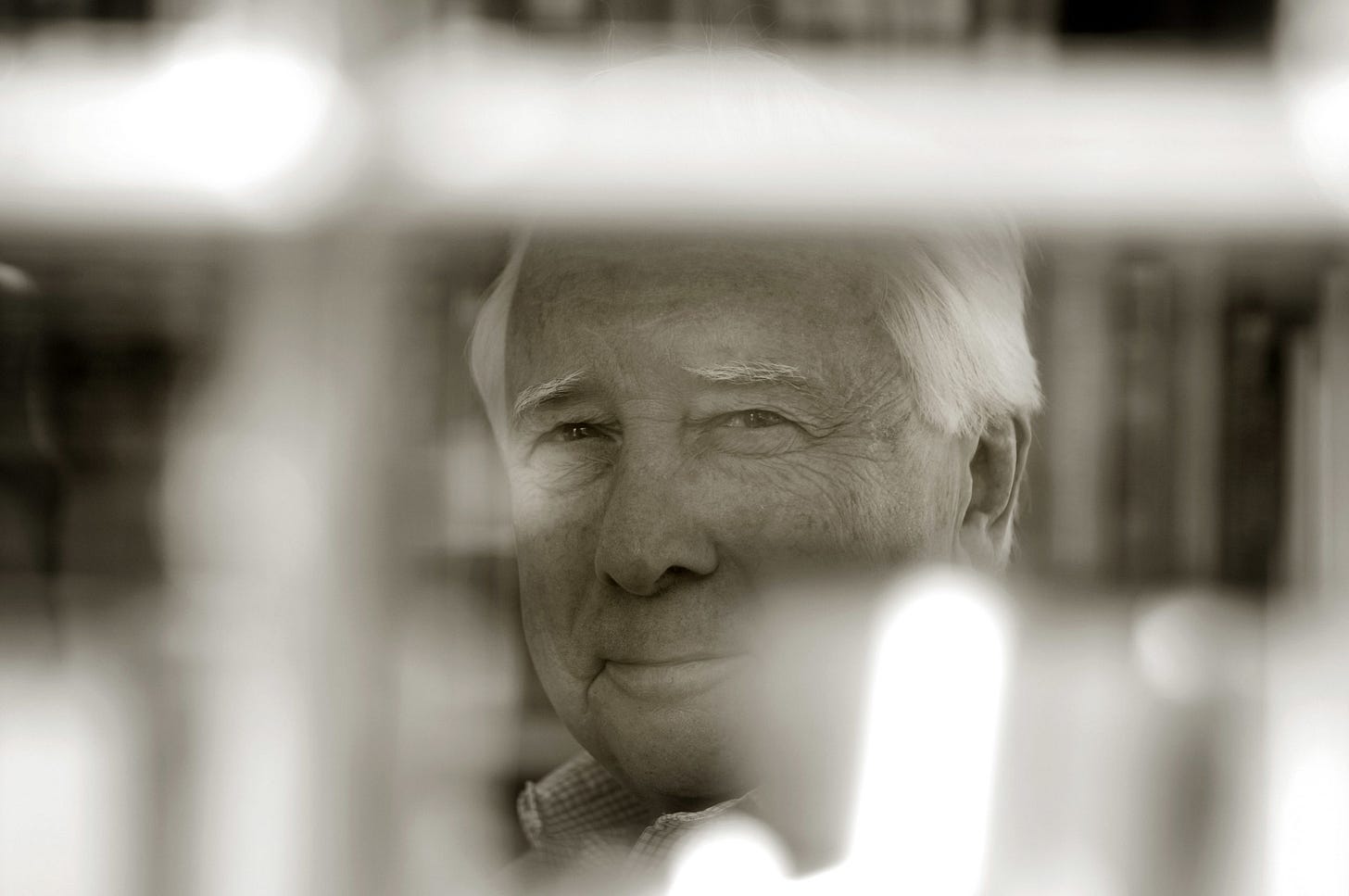The Rediscovering of David McCullough
The prize-winning writer of history, acclaimed documentary narrator, and best-selling biographer of John Adams and Harry Truman has died at 89.

“Have you read John Adams? What do you think of the miniseries?”
These are the first questions I receive anytime I tell anyone I’m writing a book on John Adams. They never include the full title, the author’s name, or the title of the HBO miniseries. They don’t have to.
Between 1968 and 1992, David McCullough had written six books and racked up a slew of awards, including the National Book Award (twice) and the Pulitzer Prize. His voice, if not his name, was familiar to many Americans as the narrator of many programs on PBS, most famously Ken Burns’s 1990 documentary series The Civil War. But he didn’t become a real cultural touchstone until 2001, when he published John Adams.
I think someone gave a copy of John Adams to my dad as a gift the next year, and like a typical teenager, I decided it was mine. I inhaled it. I loved the John Adams I found in McCullough’s words—stubborn, self-righteous, insecure, virtuous, and utterly devoted to his fiercely intelligent wife. I didn’t know it at the time, but it turns out that book would stick with me in ways I couldn’t possibly imagine.
Although I adored history, teenage-me was going to be a lawyer. I spent years competing at mock trial, I took any constitutional history and pre-law classes I could find in college, took the LSAT, applied to law schools, and got into several excellent options.
Then, one night my senior year in college, I was trying to finish my final application—for the University of Pennsylvania. They required an additional writing sample with the prompt: “Describe a picture of literature or art that inspired you to study the law.” It was a brilliant question because it was utterly impossible to bullshit.
And boy did I try. I wracked my brain for art or books that had a legal element. I could think of tons of examples of paintings I loved, or books that brought me to tears. But they didn’t have anything to do with law school.
My now-husband tried to help. He offered a number of suggestions, before saying “What about John Adams? You loved that book growing up.”
“Yeah,” I replied, “But I loved it because of the history, not the law.”
“. . . oh f*&k.” I never finished the University of Pennsylvania application.
That night, I set aside my decade-old plan to attend law school, and instead began researching Ph.D. programs.

(Photo by the author)
Twelve years later, I still have the same copy of John Adams. After traveling with me across the country and back again, and enduring countless moves, it’s a little worse for wear. The binding has nearly disintegrated and sticky notes poke out of the pages. But I have it. I also have the Ph.D., a book of my own under my belt, and I’m working on a new one about John Adams’s presidency. I don’t agree with everything McCullough wrote in the pages of his most famous book, and I think there are big moments he misses. But his work changed the way Americans remember this previously overlooked Founder. And it changed my life.
McCullough’s books were translated into dozens of languages and made into movies and TV shows. He made history fun for generations of readers and convinced millions that reading was a worthy endeavor. For this tremendous service, he received every award imaginable, including the Presidential Medal of Freedom—a plaudit earned by only a small handful of distinguished writers.
His career was defined by lifting forgotten moments out of the shadows, like the Johnstown Flood or the building of the Brooklyn Bridge, and bringing new life to misremembered historical figures, such as Adams and Harry Truman.
McCullough’s last work, The Pioneers (2019), defied this pattern. Rather than turning our attention to underappreciated figures, he further perpetuated the myth of the brave pioneer taming the wilderness. To be sure, the white settlers who traveled west to make a new life for themselves required tremendous bravery to leave their homes, their families, and the lives they knew. But they also required cruelty to seize lands inhabited by Native peoples and a tremendous capacity for violence to wage war on the Native nations that made their homes in the Ohio Valley.
What made McCullough’s previous works so accessible was his willingness to unflinchingly bare the flaws of his characters. John Adams could be pompous and petulant. He disowned one of his sons, Charles, for failing to conquer his (ultimately fatal) addiction to alcohol. That coldness is hard to read, but it’s an essential part of the story.
If McCullough had brought that level of scrutiny to western migration, just imagine what he could have done for our national origin story. He could have introduced countless readers to a more nuanced, complicated vision of American exceptionalism. Instead, he perpetuated a tired stereotype.
In 2017, McCullough published The American Spirit: Who We Are and What We Stand For. I think that book, a collection of his speeches that, taken together, amount to a rich exploration of American stories and the American character, better bookends the incredible career he began sixty years prior. Nonetheless, the nerdy teenager who couldn’t get enough history remains grateful for his work and the inspiration for what a career in reading, writing, and speaking about history can be.

